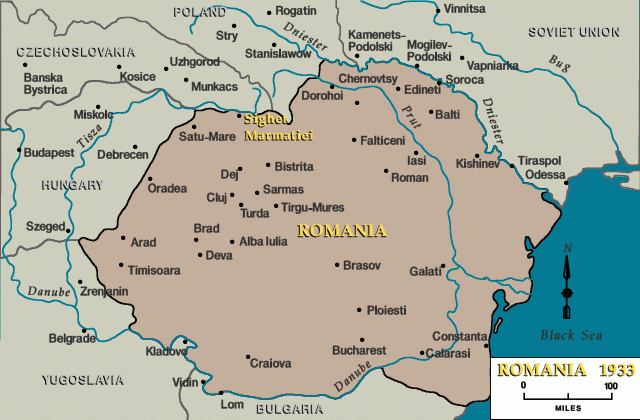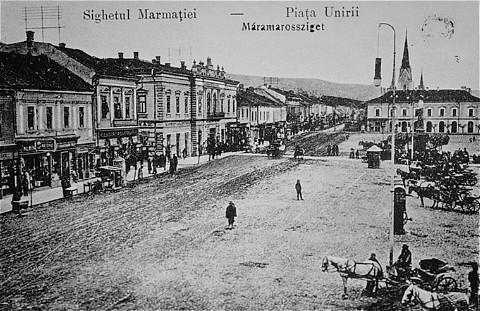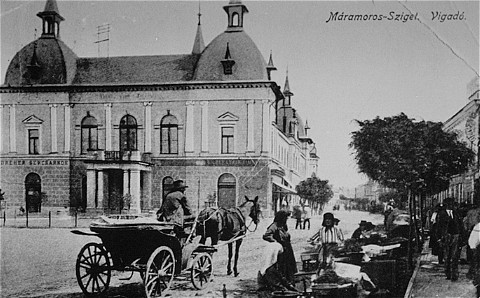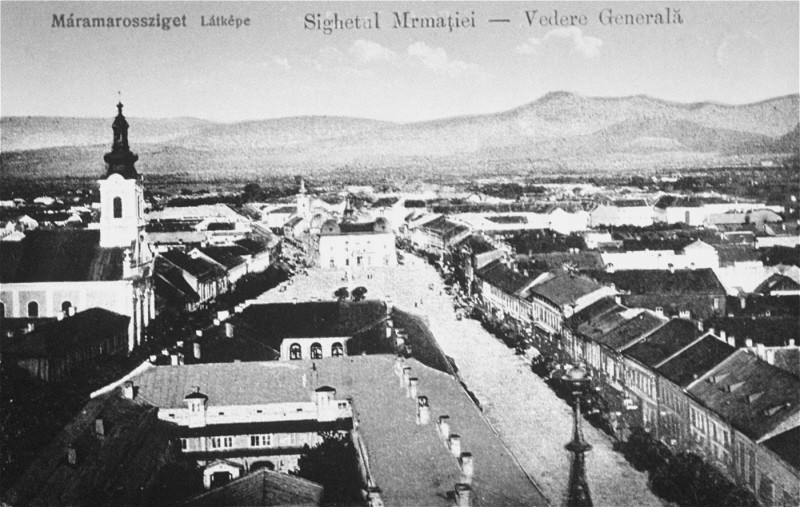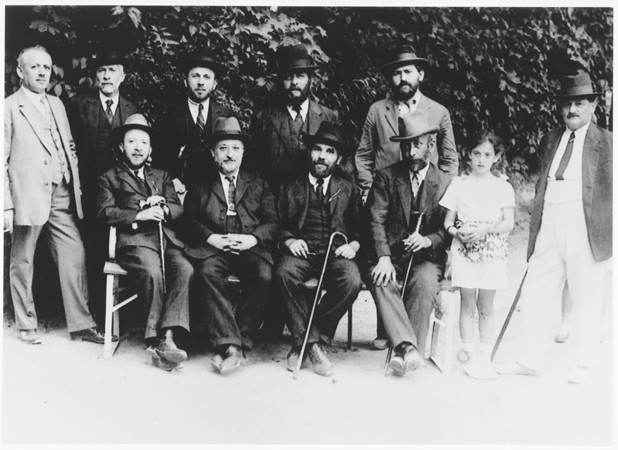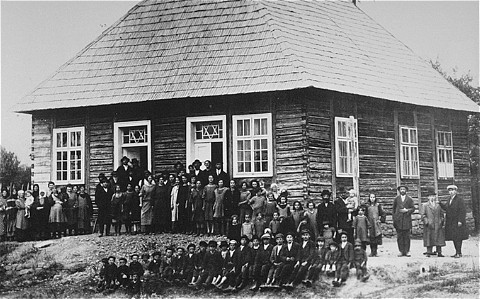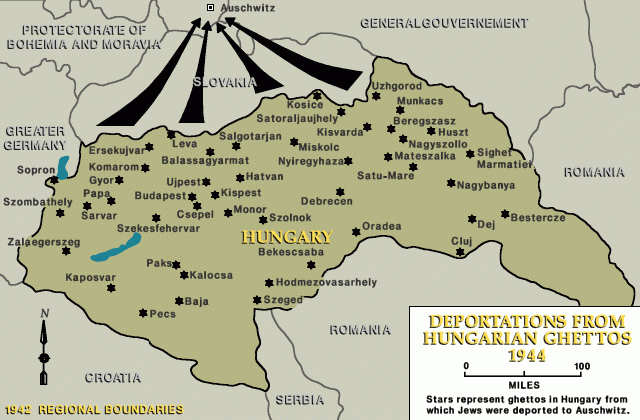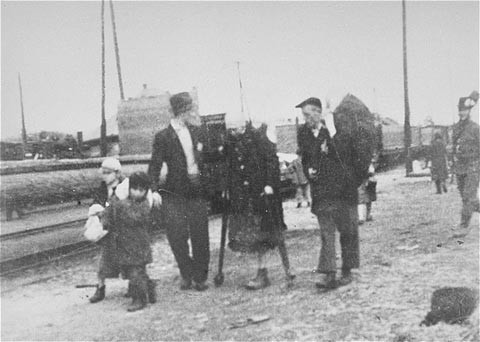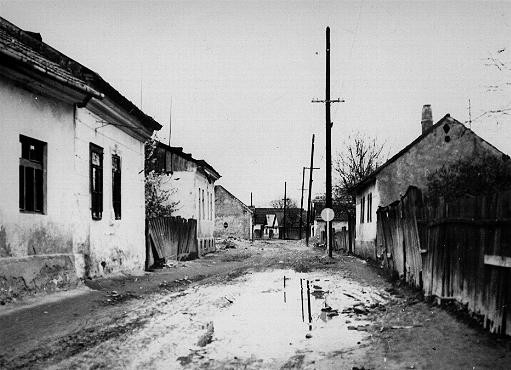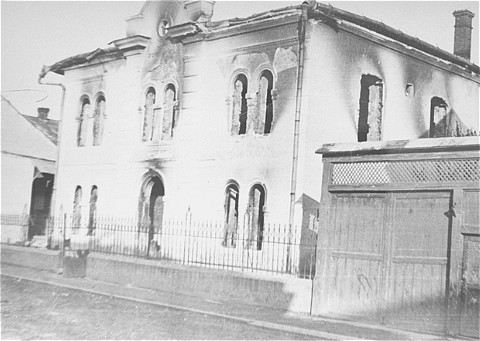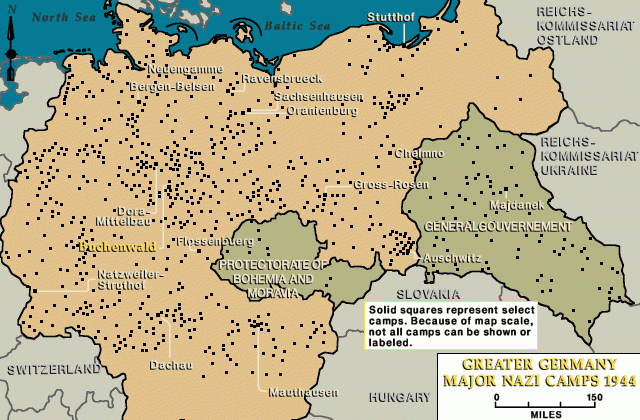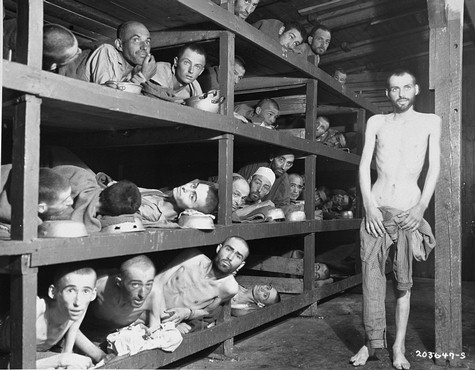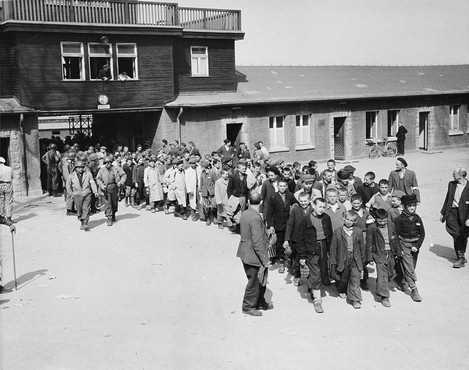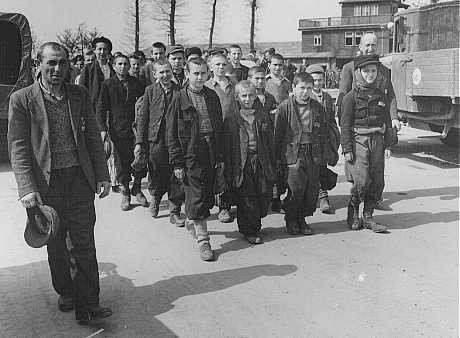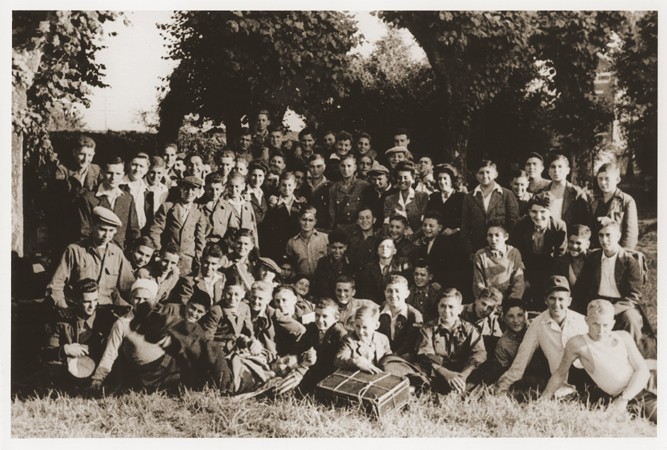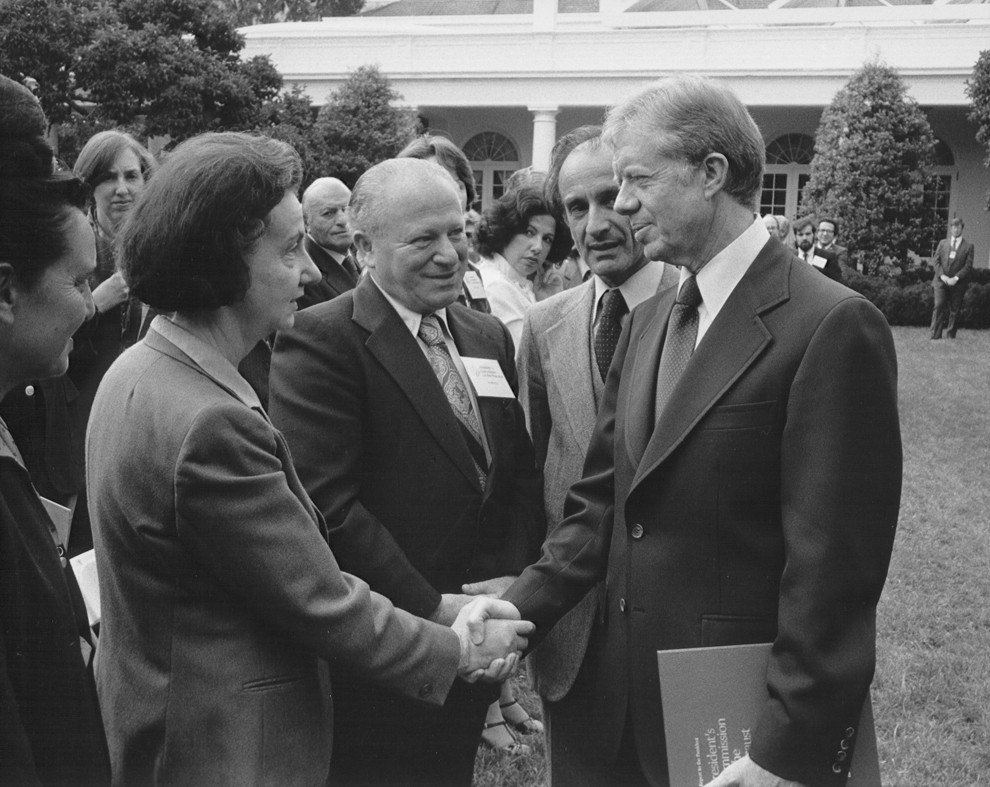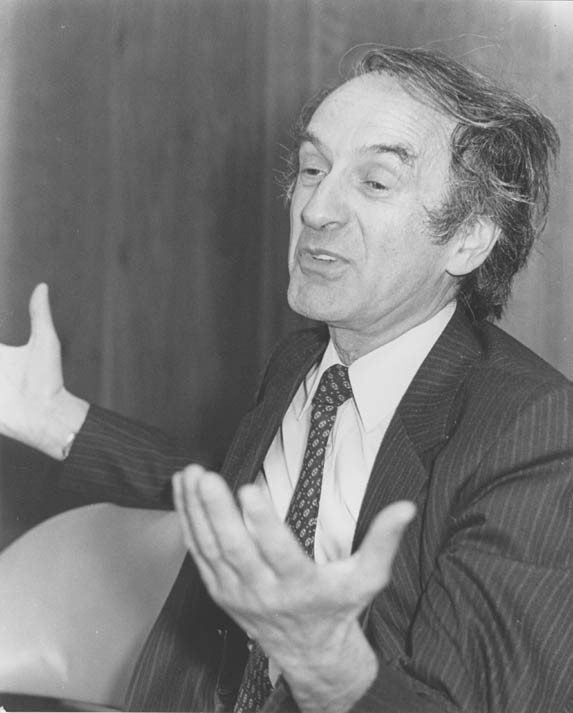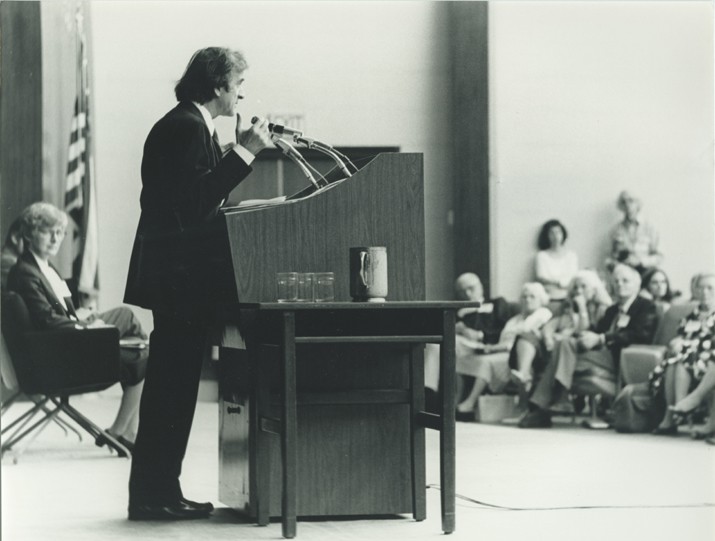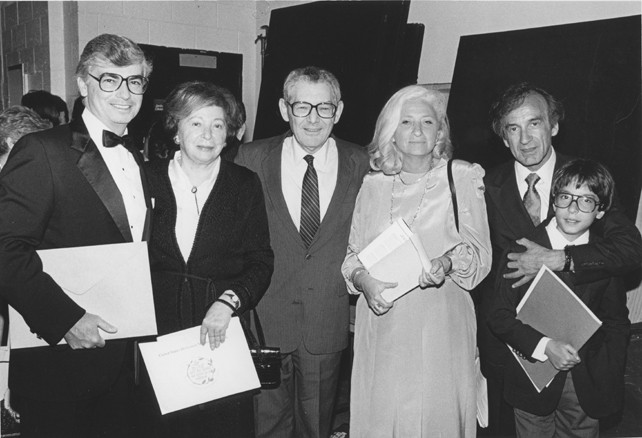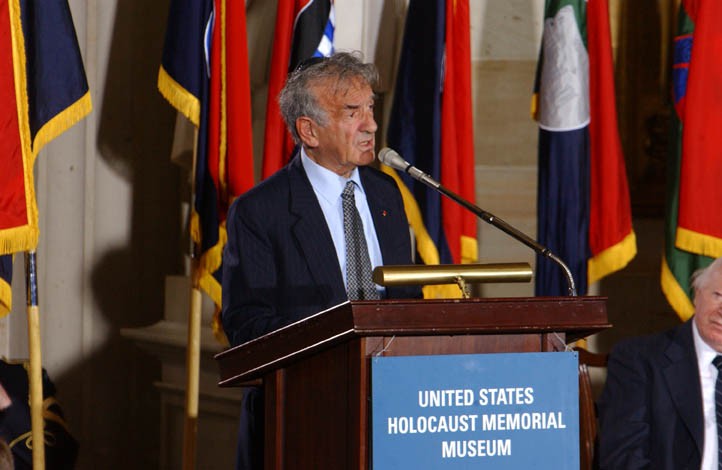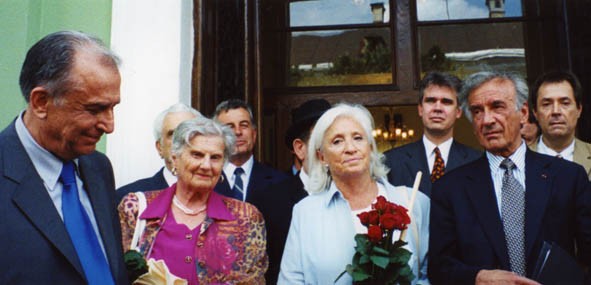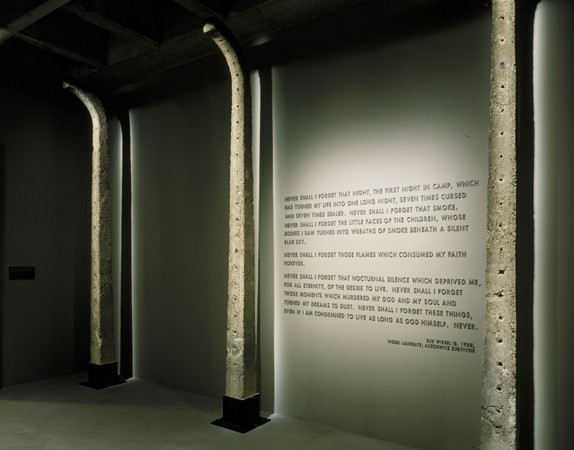
Elie Wiesel Timeline and World Events: From 1952
Elie Wiesel was a survivor of Auschwitz and human rights activist who devoted his life to educating the world about the Holocaust. He was awarded the Nobel Peace Prize in 1986. Browse a timeline of key events in the world and in Wiesel's life from 1952 until his death in 2016.
1952
After studying at the Sorbonne, Elie Wiesel begins travelling around the world as a reporter for the Tel Aviv newspaper Yediot Ahronot.
1954
During an interview with the distinguished French writer, Francois Mauriac, Elie is persuaded to write about his experiences in the death camps.
1955
Elie Wiesel wrote a nearly 900-page account of his concentration camp years, a shortened version of which was published the next year under the title Un di velt hot geshvign (And the World Stayed Silent).
1956
Shortly after moving to New York City to be a permanent correspondent, Elie Wiesel is struck by a taxicab.
1957
Recovered from his injuries but still a stateless person with expired visas, Elie Wiesel naturalizes to the United States.
1958
La Nuit (appearing in 1960 in English translation as Night) is published, and has since been translated into more than 30 languages.
1961
Dawn is published.
1962
Following his conviction for crimes against the Jewish people, Adolf Eichmann is executed in Jerusalem.
1963
Elie Wiesel becomes an American citizen.
1964
Elie Wiesel returns to Sighet and visits his childhood home.
He receives the Ingram Merill award and publishes The Town Beyond the Wall.
1966
The Gates of the Forest and The Jews of Silence are published.
1968
Legends of our Time, essays and stories, is published. Elie Wiesel wins the Prix Medicis.
1969
Elie Wiesel marries Marion.
1970
A Beggar in Jerusalem and One Generation After are published.
1972
His son, Shlomo Elisha, is born. Elie Wiesel also serves as Distinguished Professor of Judaic Studies at the City University of New York (1972–1976).
1973
In Rwanda, Juvenal Habyarimana comes to power in a military coup.
The Oath is published
1975
Elie Wiesel receives the Jewish Heritage Award, Haifa University, and the Holocaust Memorial Award, New York Society of Clinical Psychologists.
1976
Teaching was always been central to Elie Wiesel's work. Since 1976, he has been the Andrew W. Mellon Professor in the Humanities at Boston University, where he also holds the title of University Professor. He is a member of the Faculty in the Department of Religion as well as the Department of Philosophy.
1977
Egyptian president Anwar Sadat makes the first visit by an Arab leader to Israel since the foundation of the State of Israel in 1948.
1978
President Jimmy Carter appoints Elie Wiesel as Chairman of the President's Commission on the Holocaust.
1979
The United States Congress, by unanimous vote, establishes the United States Holocaust Memorial Council.
1980
Elie Wiesel receives the Prix Liber Inter, France, the S.Y. Agnon Medal, and the Jabotinsky Medal, State of Israel.
1981
The Testament is published.
1982
Elie Wiesel is the first Henry Luce Visiting Scholar in Humanities and Social Thought at Yale University (1982–1983).
1984
A symbolic ground breaking ceremony is held at the site of the future United States Holocaust Memorial Museum.
1985
President Ronald Reagan presents Elie Wiesel with the US Congressional Gold Medal of Achievement.
1986
In December, Elie Wiesel wins the Nobel Prize for Peace. Soon after, he and his wife, Marion, establish The Elie Wiesel Foundation for Humanity, an organization to fight indifference, intolerance and injustice.
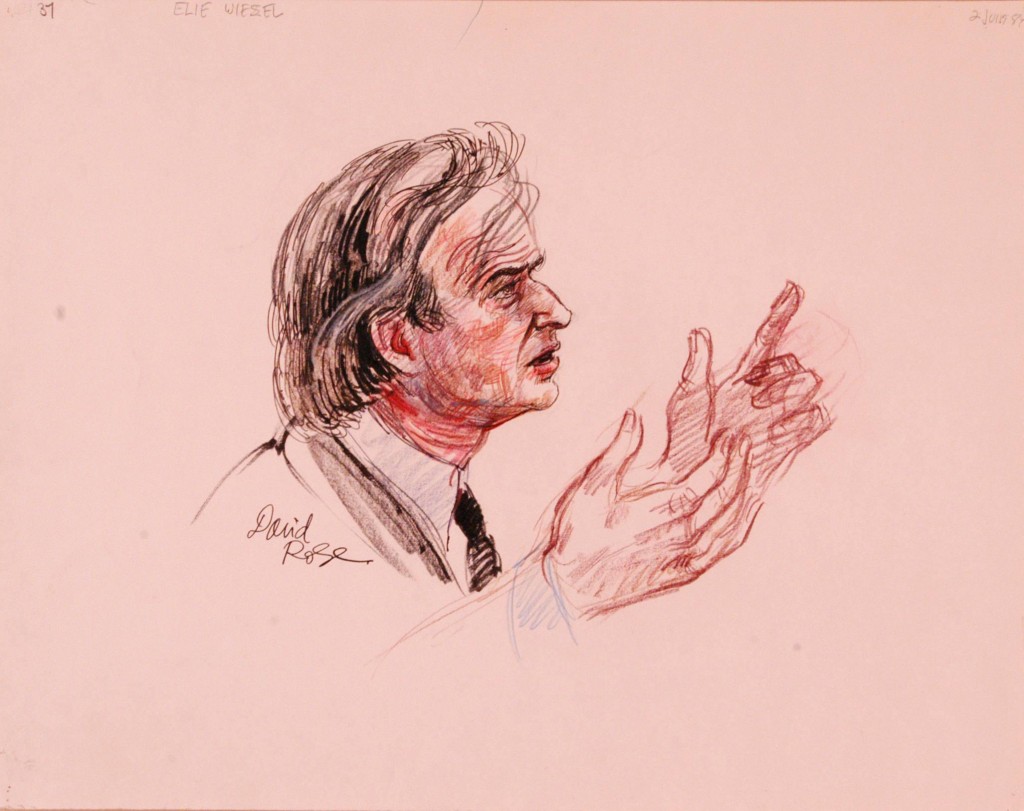
1987
Elie Wiesel testifies at the trial of Klaus Barbie.
1988
The United States signs the Genocide Convention.
Twilight, a novel, is published.
1990
From the Kingdom of Memory is published.
1991
Sages and Dreamers, Portraits and Legends from the Bible, the Talmud, and the Hasidic Tradition is published.
1993
Elie Wiesel gives address at the opening of the United States Holocaust Memorial Museum. The Museum opens to the public.
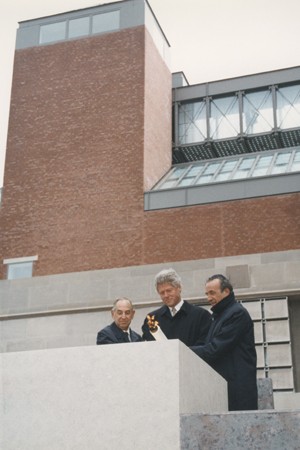
In response to the atrocities occurring in Bosnia, the United Nations Security Council issues resolution 827, establishing the International Criminal Tribunal for the former Yugoslavia (ICTY) in The Hague. It is the first international criminal tribunal since Nuremberg.
1994
Extremist leaders of Rwanda’s Hutu majority launch a campaign of extermination against the country’s Tutsi minority. In October, the UN Security Council extends the mandate of the ICTY to include a separate but linked tribunal for Rwanda, the International Criminal Tribunal for Rwanda (ICTR), located in Arusha, Tanzania.
1995
All Rivers Run to the Sea is published.
1998
The International Criminal Tribunal for Rwanda issues the world’s first conviction for genocide when Jean-Paul Akayesu is judged guilty of genocide and crimes against humanity for acts he engaged in and oversaw as mayor of the Rwandan town of Taba.
1999
And the Sea is Never Full and King Solomon and his Magic Ring, a book for children, are published.
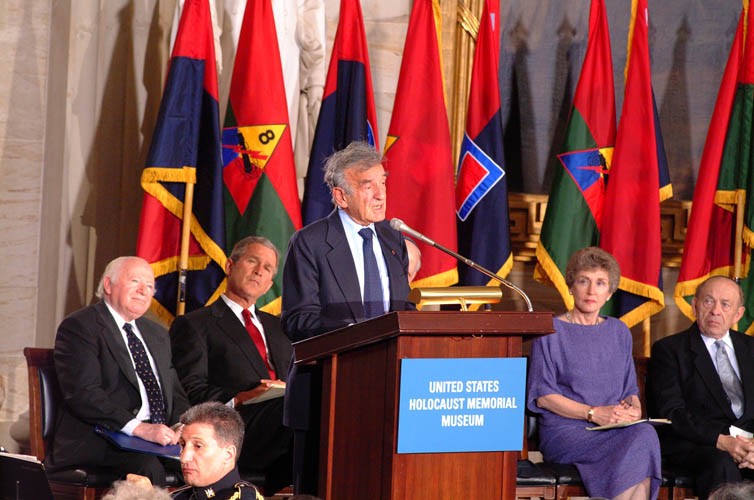
2001
Elie Wiesel addresses the Days of Remembrance ceremony in the Capitol Rotunda, Washington DC, saying
"How does one mourn for six million people who died? How many candles does one light? How many prayers does one recite? Do we know how to remember the victims, their solitude, their helplessness? They left us without a trace, and we are their trace."
He is granted the rank of Grand-Croix in the French Legion of Honor, France (Commandeur, 1984; Grand Officier, 1990).
2002
President Iliescu of Romania presents Wiesel with "The Star of Romania."
2003
In November Wiesel addresses the Tribute to Holocaust Survivors, at the United States Holocaust Memorial Museum, Washington, DC.
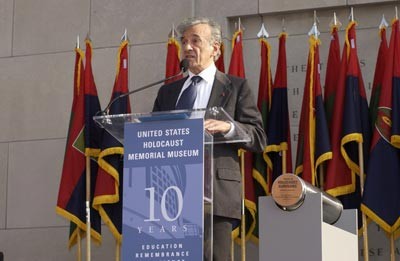
2004
In July Elie Wiesel delivers remarks “On the Atrocities in Sudan” at the Darfur Emergency Summit, convened at the Graduate Center of the City University of New York on July 14, 2004, by the American Jewish World Service and the United States Holocaust Memorial Museum. In September US Secretary of State Colin Powell testifies before the Senate Foreign Relations Committee that "genocide has been committed in Darfur."
Elie Wiesel receives the Commander's Cross from the Republic of Hungary and delivers the Final Report of the International Commission on the Holocaust in Romania. Wiesel was chairman of the commission.
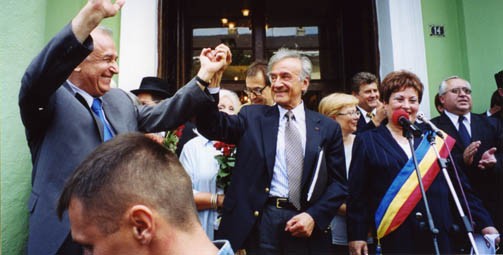
2005
Elie Wiesel receives the Man of the Year award from the Tel Aviv Museum of Art, the Light of Truth award from the International Campaign for Tibet, and publishes The Time of the Uprooted, a novel.
2006
Elie Wiesel travels to Auschwitz with Oprah Winfrey.
2011
The inaugural United States Holocaust Memorial Museum Award is bestowed on Nobel laureate and Founding Museum Chairman Elie Wiesel—and renamed in his honor—for his singular role in establishing and advancing the cause of Holocaust remembrance.
Elie Wiesel died on July 2, 2016, in Manhattan, New York.
Critical Thinking Questions
- Explore the many legacies of Elie Wiesel.


